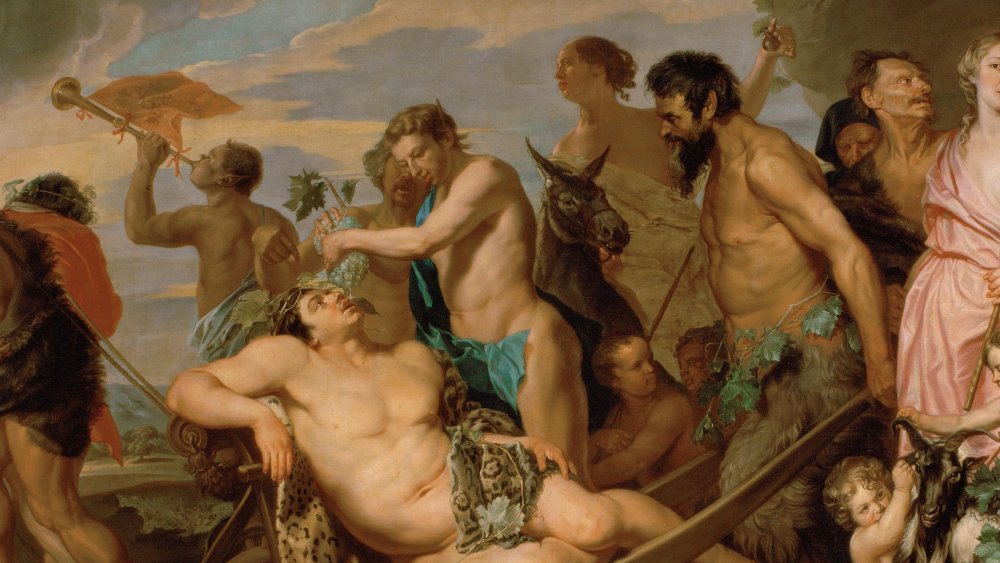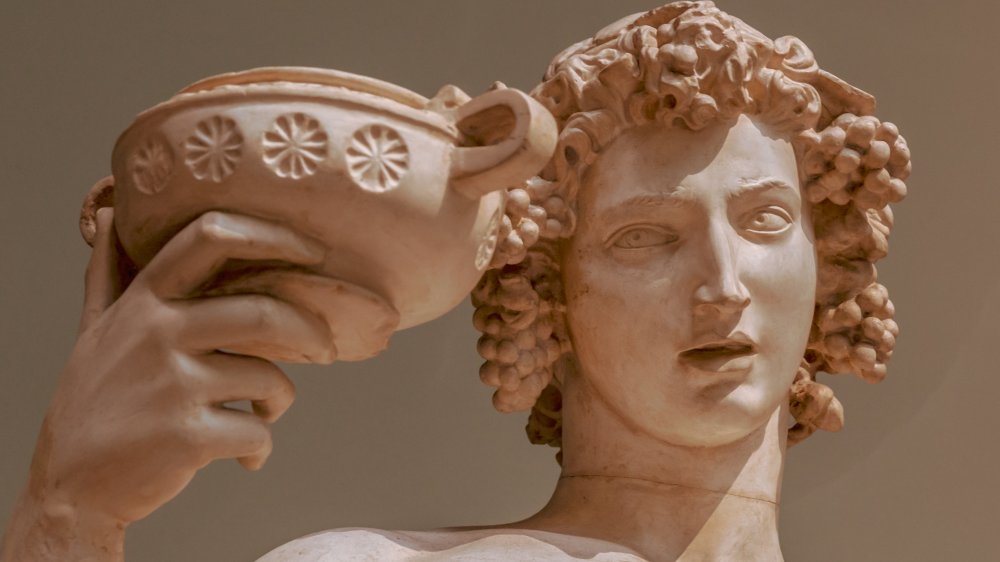The Crazy History Of Bacchanalia Finally Explained
A number of good classicists will tell you that the Ancient Romans had one truly great gift: They knew a good thing when they saw it. And then they appropriated it. Especially if that good thing originated with the Ancient Greeks. Take legends, for instance. The Greeks had Odysseus: the Romans, Ulysses. (They're both road movies.) The website Greek Gods and Goddesses draws the parallels, pointing out how the Greek King of the Gods was Zeus, while the Romans had Jupiter. The Greek oceans were ruled by Poseidon, and the Romans favored Neptune. And so on, down the list. The attributes tended to be the same, and while there were occasional differences, every once in a while it was very much a branding issue.
Case in point would be the Greek God of Wine, Dionysus. For the Romans, it was Bacchus. And just as Wayne and Garth partied on, so did cheerful Romans, who were properly grateful for the fruit of the vine. Mythology.net relates that Bacchus was also involved with agriculture, but really, everyone knows that you have to grow the vines that produce the grapes, that produce the wine, that produces all manner of history. Also, parties. Wine, says the Ancient History Encyclopedia, was an important commodity in the ancient world around the Mediterranean. It was an everyday drink, consumed neat or diluted — a "social lubricant."
Perhaps it should surprise no one, then, when New World Encyclopedia explains that the term bacchanalia is related to Bacchus.
Bacchus or Dionysus?
Bacchanalia were a series of religious initiation rites, dedicated to the aforementioned God of Wine, which started around 650 BCE and picked up steam in the Second and Third Centuries BCE. There are several mentions in the ancient writings — Livy, for example — which may or may not be exaggerated for dramatic effect, so to speak. The rites, which involved food, and yes, wine, were first performed exclusively by women, wrote William Smith in an 1875 piece posted by the University of Chicago. They tended to be private (one might say "secret"), though as a movement they grew and added adherents, including males. In time the rites were viewed as "in the highest degree immoral and licentious." Eventually there were allegations of sexual perversity of all sorts, and other crimes as well — murder among them, says Women in the Ancient World.
In 186 BCE, the Roman Senate issued a decree banning the celebrations. Also to no one's surprise, the celebrations kept going, especially in the southern part of Italy, according to Encyclopedia Britannica. Party on, Julius.

